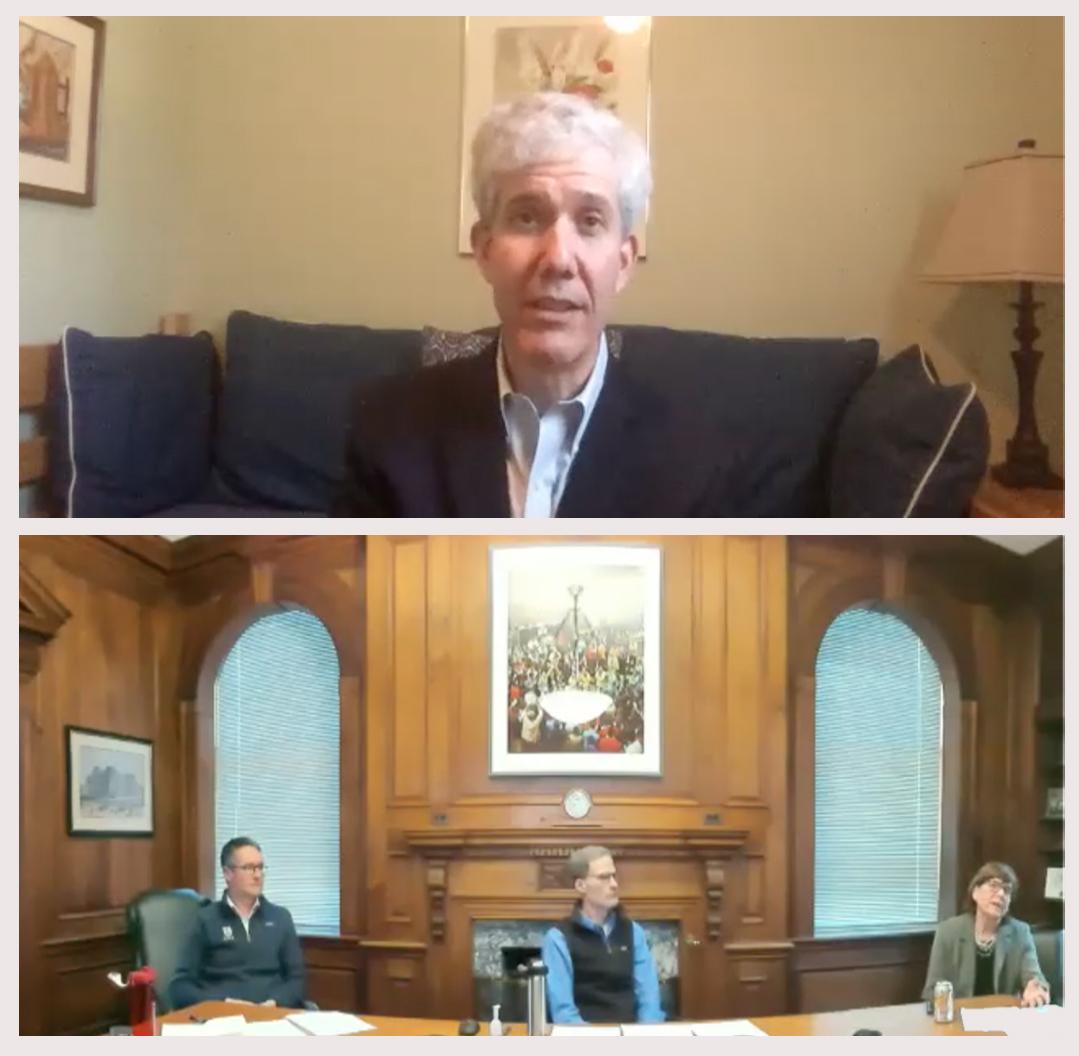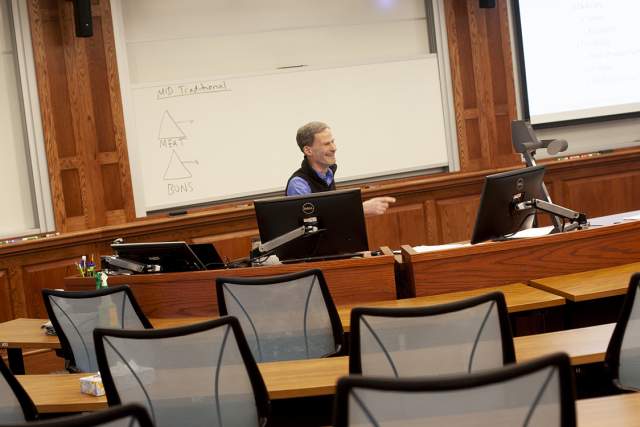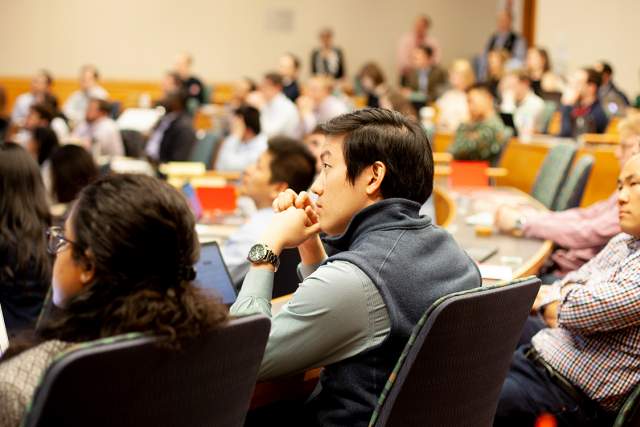As the COVID-19 pandemic extends its impact to every corner of society, the Tuck School of Business began the spring term with a remote-only format which will be used for the remainder of the school year. On Thursday, Dean Matthew J. Slaughter and other senior leaders hosted a virtual town hall meeting with hundreds of students, providing information and inspiration and answering a range of questions.
After greeting students and wishing them safety and good health, Slaughter reiterated the twin priorities guiding the school’s response to the ongoing COVID-19 situation. “The first principle we must begin from is to maintain our community health and the health of the communities around us,” he said. “Second, we need to be living our academic mission as creatively and earnestly as we can in this historic time.”
The opportunity to understand where people are right now and then build yourself into the kind of leader you want to be is immense.
Those two priorities have guided the Tuck faculty and staff as they have worked hard to create an engaging virtual learning experience delivered through live and interactive Zoom class sessions. During these sessions, students see their professors conducting class in real-time and can ask and respond to questions. Likewise, professors see their students and seek participation and spur discussion, just as in a regular class session. “We’ve captured a lot of the interactivity we pride ourselves on at Tuck,” said Joe Hall, Tuck’s senior associate dean for teaching and learning.
As Slaughter emphasized, finding new and different ways in the current environment to deliver Tuck learning is crucial to fulfilling the school’s mission of developing wise, decisive leaders who better the world through business. And given the global pandemic, that mission is more important than ever. Slaughter said he has heard the same refrain in conversations with CEOs and government leaders in recent weeks. They need leaders in their organizations who possess the very capabilities Tuck teaches. “There’s no organization that I’ve encountered in recent months that doesn’t find itself in unprecedented turmoil due to COVID-19,” Slaughter said. “What we do at Tuck, whether it’s through distance technology or in person, is unrivaled and exactly what so many organizations in the world are seeking.”

Dean Matthew Slaughter (top) and Career Services director Stephen Pigeon T'07, with deans Joe Hall and Sally Jaeger (bottom), share information and respond to student questions during Thursday's virtual town hall.
That demand for wise and decisive leaders is also still strong among Tuck’s recruiting partners, said Stephen Pigeon T’07, the school’s executive director of career services. “We’ve been in touch with all of our recruiting partners, and the message at present is, ‘Yes, we will still run our internship classes and honor all of their offers, and we will still honor all of our full-time offers, too,’” he explained.
Pidgeon has been heartened by the Tuck students who have reached out to him to ask how they can help. He encouraged them to connect their classmates with friends, family, or former colleagues. “The strength of Tuck is in its community, both with you and the alumni,” he said.
In that spirit of staying connected, Caroline Wells T’20, the Tuck student body president, checked in from her home in Washington, D.C. to let classmates know that the student board is working hard to brainstorm virtual events, compile them in one place, and send them out. Earlier this week, she sent out a link to ideas for virtual activities students can do with friends and classmates, and said the student board is looking for students to lead and co-create virtual programming that can still tap into student interests.
The MBA Program Office is also working to maintain the high level of student service it always has. “If you need anything, just get in touch,” Sally Jaeger, associate dean of the MBA program, told students. Jaeger and the MBAPO is implementing a plan to virtually continue the extensive and rich co-curricular programming organized by the centers and clubs on campus, such as speaker series and country/culture chats.
In closing, Slaughter encouraged students to summon their sense of resolve and think about how they can serve society in this new reality. “The opportunity to understand where people are right now and then build yourself into the kind of leader you want to be is immense,” he said.

